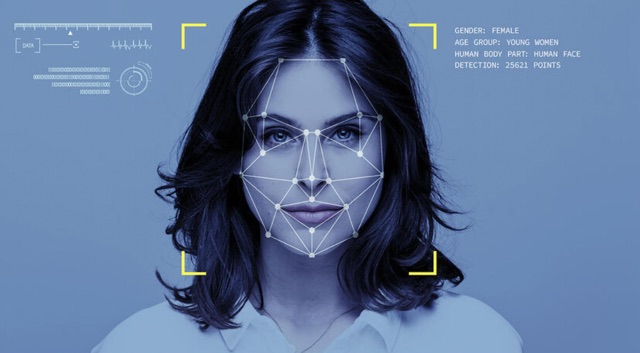
Have you heard about Clearview AI, the “we can identify anyone who has a picture on the Internet” outfit? Privacy has emerged as a key concern in the era of technology’s ubiquity in our daily lives. Holding a controversial position in this ongoing debate is Clearview AI, a company specializing in facial recognition technology. Pledged to revolutionize law enforcement and security, Clearview AI has sparked apprehension over issues surrounding privacy and the invasive nature of surveillance.
As New York Times reporter Kashmir Hill explains, Clearview AI scrapes images from across the Internet, including social media, and retains it in vast stores of data banks, meaning that when someone uploads your picture in order to have Clearview AI identify who you are, that can lead to your Facebook, Twitter (X), Instagram, LinkedIn and other social media accounts, as well as, of course, any websites on which you may appear. And, not only can they produce an identification of pretty much any person who has ever had a picture of themselves posted on the Internet, but they can also disappear people who they deem appropriate to disappear, as Hill learned when she started investigating them.
Said Hill “But through the process of talking to police officers, I discovered that Clearview AI was tracking me, that they had put an alert on my face. And every time one of these officers uploaded my photo to try to show me what the results were like, they were getting a call from Clearview AI and being told to stop talking to me. And Clearview AI actually blocked my face for a while from having any results. And that was very chilling to me because I realized, well, one, this company is – has this power to see who law enforcement is looking for, and they’re using it on me, and also that they had the ability to control whether or not a person could be found.”
Clearview AI Raises Privacy Concerns
Clearview AI has gained prominence for its advanced facial recognition technology, capable of searching countless public images across various online platforms, like social media. By uploading a photo, users swiftly receive a comprehensive Internet-based collection of relevant images and associated sources. Although undeniably impressive in scale and efficiency, this attribute raises significant privacy apprehensions.
The infringement on privacy showcased by Clearview AI is undeniably terrifying. Consider the possibility of individuals coming across their faces in databases utilized by law enforcement, businesses, and other organizations without ever having given consent for their images to be exploited in facial recognition endeavors. Such a lack of agreement and comprehension surrounding this practice brings forth substantial ethical concerns regarding surveillance and individual liberty.
The Internet Patrol is completely free, and reader-supported. Your tips via CashApp, Venmo, or Paypal are appreciated! Receipts will come from ISIPP.
A crucial element to consider is the potential for exploiting Clearview AI technology. Despite the initial intentions of the company to aid law enforcement in combating crime, the utilization of this technology is frequently supervised or restrained. This absence of responsibility provides room for exploitation, such as surreptitiously and non-consensually targeting individuals. Consequently, this unfolding narrative portrays a future devoid of privacy.
The dubiousness surrounding Clearview AI’s big data storage extends to its security. Incidents of recent breaches and illicit entry into the confidential information of numerous tech companies serve as striking examples of the perils associated with all-encompassing facial recognition systems. Mismanagement of this kind of personal data can inflict severe repercussions on individuals, exposing them to identity theft and various forms of threats.
Criticism Earned
Like other facial recognition technology, Clearview AI has faced criticism for its bias concerning race and gender. Research has indicated that these tendencies can disproportionately target individuals of color and women, magnifying their presence in criminal data compared to white individuals and men. The implications of such injustices are profound, resulting in erroneous arrests and reinforcement of stereotypes within the criminal justice framework.
The pressing cry for legislation arises from the increasing concerns about privacy. Policymakers and privacy advocates are pushing for all-encompassing measures to govern facial recognition technology usage. These measures would involve obligatory consent, safeguarding data, and ensuring transparency. The ultimate objective is to strike a harmonious equilibrium between technological advancements and safeguard individual rights.
Clearview AI, a breakthrough in facial recognition technology, may present promising advancements. However, the unrestrained gathering and distribution of personal photographs without consent, the potential for abuse, and the problematic aspects of this system underscore the pressing requirement for legislation and oversight.
The Internet Patrol is completely free, and reader-supported. Your tips via CashApp, Venmo, or Paypal are appreciated! Receipts will come from ISIPP.









